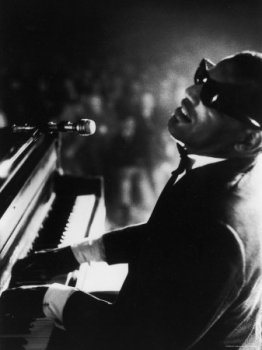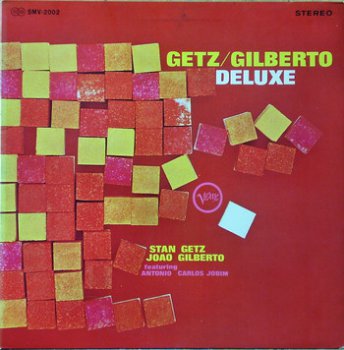Apogee - Sisyphos (1998)(2006)

Apogee - Sisyphos (1998)(2006)
Artist: Apogee Title Of Album: Sisyphos Year Of Release: 1998/2006 Label (Catalog#) : Musea / MALS MALS 105 Country:: Germany Genre: Prog Rock, Crossover Prog Quality: WavPac (*image + .cue,log) Bitrate: Lossless Time: 63:52 Full Size: 534Mb(+3%)(covers) Info: progarchives Upload: xfile.cloud
14 10, 2025
Steve Hillage + Arzachel + Khan: 10 Albums
По многочисленным просьбам / Reupload New Links Thank your sheloshim and original ripper / uploader Steve Hillage + Arzachel + Khan: 10 Albums Performer: Steve Hillage + Arzachel (with Steve Hillage) / Khan (with Steve Hillage) Albums: -------------- ☆☆☆☆☆☆☆☆☆☆☆ -------------- Arzachel: 1969 Arzachel Akarma Records AK 184 Italy 2002 -------------- ☆☆☆☆☆☆☆☆☆☆☆ -------------- Khan: 1972 Space Shanty Rock Legend Series / Reissue 2008 Universal Music Japan Mini LP SHM-CD UICY-93833 --------------

Steve Hillage + Arzachel + Khan: 10 Albums
По многочисленным просьбам / Reupload New Links Thank your sheloshim and original ripper / uploader Steve Hillage + Arzachel + Khan: 10 Albums Performer: Steve Hillage + Arzachel (with Steve Hillage) / Khan (with Steve Hillage) Albums: -------------- ☆☆☆☆☆☆☆☆☆☆☆ -------------- Arzachel: 1969 Arzachel Akarma Records AK 184 Italy 2002 -------------- ☆☆☆☆☆☆☆☆☆☆☆ -------------- Khan: 1972 Space Shanty Rock Legend Series / Reissue 2008 Universal Music Japan Mini LP SHM-CD UICY-93833 --------------
14 10, 2025
The Creation: 2017 Creation Theory - 4CD + DVD Box Set Edsel Records
Lossless Galaxy Release The Creation: 2017 Creation Theory 4CD + DVD Box Set Edsel Records Performer: The Creation Box: 2017 Creation Theory (4CD + DVD Box Set Edsel Records) Info: Demon Music / Edsel Records Bam-Caruso Records / Cherry Red Records / Universal Music CD / DVD / Amazon Exclusive Limited Edition Numbered (limited to 500) № 127 Catalog Box / All Discs: CREATIONBOX01 Made in EU Dynamic Range: 8 / 8 / 9 / 10 Genre / Style: Rock / Mod Released Year: Apr 28, 2017 Format: CDs: FLAC /

The Creation: 2017 Creation Theory - 4CD + DVD Box Set Edsel Records
Lossless Galaxy Release The Creation: 2017 Creation Theory 4CD + DVD Box Set Edsel Records Performer: The Creation Box: 2017 Creation Theory (4CD + DVD Box Set Edsel Records) Info: Demon Music / Edsel Records Bam-Caruso Records / Cherry Red Records / Universal Music CD / DVD / Amazon Exclusive Limited Edition Numbered (limited to 500) № 127 Catalog Box / All Discs: CREATIONBOX01 Made in EU Dynamic Range: 8 / 8 / 9 / 10 Genre / Style: Rock / Mod Released Year: Apr 28, 2017 Format: CDs: FLAC /
13 10, 2025
Жанры
Lossless Galaxy Release
Русская музыка
--Поп
--Рок
--Панк
--Альтернатива
--Металл
--Рэп, Хип-Хоп, R'n'B
--Джаз и Блюз
--Фолк
--Шансон, Авторская песня
--СССР
Зарубежная музыка
--Pop
--Rock
--Hard Rock
--Progressive & Art-Rock
--Pop-Rock & Soft Rock
--Instrumental Rock
--Heavy, Traditional, Industrial Metal
--Power, Gothic, Sympho Metal
--Thrash, Speed, Groove, Modern Metal
--Death, Melodic Death, Doom, Dark Metal
--Black, Pagan, Folk, Viking Metal
--Alternative
--Punk
--Disco, Eurodance
--Rap, Hip Hop, R'n'B
--Reggae, Ska, Dub
--Jazz, Blues, Soul
--Folk, Country, Ethnic
--Electronic, Ambient, New Wave
--House, Techno, Trance
Другие жанры
--New Age, Relax, Meditative & Flamenco
--Chillout, Lounge, Downtempo, Trip-Hop
--Drum & Bass, Jungle, Breakbeat, IDM
--Classical / Классическая музыка
--Soundtrack
--Музыкальные сказки
Vinyl Rip
HI-Res / DVD-Audio / DTS
--SACD
--DSD
--DVD-Audio
Сборники Lossless-Galaxy
Альбомы 2022
Альбомы 2023
Альбомы 2024
Теги
1st Press 2022 2023 2024 2025 70... AOR Black Metal Blues Blues Rock Bootleg Series Classic Rock Death Metal Discography Exclusive for Lossless-Galaxy Folk Rock Fusion Hard Rock Heavy Metal Hi-Res Japanese Edition Jazz Jazz Rock lossless Melodic Death Metal Melodic Rock Modern Electric Blues Pop Pop Rock Power Metal Prog Rock Progressive Metal Progressive Rock Psych Rock Psychedelic Rock Rock SACD Symphonic Metal Thrash Metal Дискографии от KoGGaN
Архивы
Опрос
В каком формате хотели бы видеть релизы на сайте ?
 Автор: VP_1974, 11 января 2012, Комментариев: 0, Просмотров: 1 335
Автор: VP_1974, 11 января 2012, Комментариев: 0, Просмотров: 1 335Aka Moon - Amazir (2006)
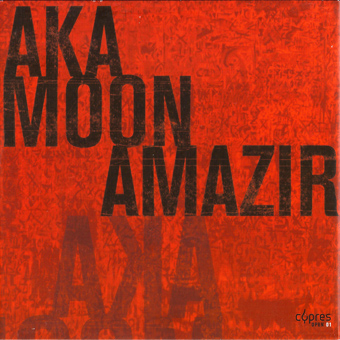
Исполнитель: Aka Moon
Альбом: Amazir
Год выхода: 2006
Страна: Belgium
Колличество дорожек: 10
Общее время звучания: 74:33 min
Жанр: Fusion / Jazz-Rock / Avant-Jazz
Формат: Lossless / FLAC (log + cue + scans)
Размер файла: 470 mb
Залит на: Narod.ru
Aka Moon are one of the best known modern jazz/jazz-rock bands from Belgium. They are a trio of Fabrizio Cassol-sax, Michael Hatzigeorgiou-electric bass and Stephane Galland-drums, plus guests or not, depending on the CD or the project that they are working on. This one includes Fabian Fiorini-piano, the great Magic Malik-flute & vocals plus Nelson Veras-guitar and Robin Eubanks-trombone. "This is a group that from the outset seemed to be in a state of grace. Ever since their 1992 debut, after visiting the Aka pygmies of Central Africa, the musicians of Aka Moon have constantly been seeking out new encounters. The originality of their itinerary is astonishing and has revealed unsuspected worlds of melody and rhythm. Encounters are also a feature of Amazir: this session sees Aka Moon in the company of such internationally acknowledged musicians as Robin Eubanks (USA), Fabian Fiorini (Belgium), Magic Malik (France) and Nelson Veras (Brazil). This recording is special in not having been conceived as a uniform sequence of traditional musical numbers in ‘standard forms’, as was true of Aka Moon in the past. All the pieces on this CD are independent of each other, though there are a few cross-over features: on the one hand there are Cuban influences with characteristic rhythms; on the other hand these compositions are an extension of music inspired by the Yi Ching, the Chinese book of divination, with its particular harmonic vibrations. This give and take has produced 10 fairly short, autonomous pieces that reflect the musical preoccupations and improvising skills of these musicians united in the studio by the idea of letting each express his own musical vision, following the specificity of his own background. Let yourself be guided along this journey to the outer limits of musical style, where the traditional label of ‘jazz’ is expanded to reflect the musical approach of Aka Moon today."
 Автор: ssrocker, 5 января 2012, Комментариев: 1, Просмотров: 2 257
Автор: ssrocker, 5 января 2012, Комментариев: 1, Просмотров: 2 257Святослав Вакарчук (Океан Ельзи) - Брюссель (2011)
Исполнитель: Святослав Вакарчук (Океан Ельзи)
Страна: Украина
Альбом: Брюссель
Жанр: Rock / Jazz
Год: 2011
Формат: FLAC (tracks)
Размер: 273 Mb
Залито: FileSonic / FileServe
Альбом «Брюссель» записаний у серпні 2011р. в Брюсселі на студії ICP Recording Studios. До альбому увійшло 12 композицій, які звучать українською та англійською мовами.
 Автор: VP_1974, 26 декабря 2011, Комментариев: 0, Просмотров: 1 152
Автор: VP_1974, 26 декабря 2011, Комментариев: 0, Просмотров: 1 152David Binney - South (2001)
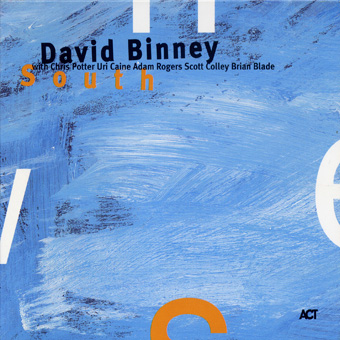
Исполнитель: David Binney
Альбом: South
Год выхода: 2001
Страна: USA
Колличество дорожек: 11
Общее время звучания: 70:46 min
Жанр: Jazz / Free Jazz / Jazz Contemporary
Формат: Lossless / FLAC (log + cue)
Размер файла: 439 mb
Залит на: Narod.ru
If a musical work aspires to the adventurous, it is essential to have musicians who can confidently navigate the terrain. Saxophonist David Binney has assembled such a crew on South : tenorist Chris Potter, guitarist Adam Rogers, pianist Uri Caine, and bassist Scott Colley, plus Brian Blade or Jim Black on drums.
The opening "Out Beyond Ideas" is layered like a story with several chapters. Potter wails passionately above the soaring vamp until everyone gently alights to Earth. "The Global Soul" opens with a mysterious plucked solo by Colley, percolating with Caine and Colley in a three-note tandem. "Leaving the Sea" begins with a creeping piano statement and, in its wake, Binney's soprano whispers into play along with spare accompaniment by Colley and Blade. The hypnotic ballad "Traveler" features Rogers overdubbed on guitars and electronic effects by Binney. "New York Nature" includes more dexterous axe-work, starting off in the jazz idiom and ending up as a soul/funk excursion.
Binney is the prime mover behind this project, but he has so much confidence in his fellow musicians that he seems content to stay somewhat in the background. His compositions are almost symphonic in nature, challenging without being esoteric, thought-provoking without seizing the listener by the collar.
South proves that jazz is not restricted to a head/solos/head structure. Nor does it have to be a lot of indiscriminate wailing in an arcane tongue. As leader, Binney takes full advantage of his talented ensemble, and this excellent disc reveals just how connected the common threads of music, from jazz to R&B to classical, can be. ~ Terrell Kent Holmes, AAJ
South is a hauntingly beautiful album of outstanding compositional innovation. The sheer angularity of the opening horn phrase is like tiptoeing across an exposed arete, the cymbals nervously fluttering wisp-like at your heels, the thinnest melodic bridge that leads you to the relative safety of the song's harmonic center. Here you hunker down, comforted by the warm tones of a gently cascading guitar motif brilliantly set against parallel-running streams of intoxicating saxophone. It's a triumvirate amongst many libationary moments. In fact, the whole album makes you dizzy.
Soft complex textures trade places with raucous screaming solos. Rich horn arrangements belie the modernity of this recording. The same worn out path or a new direction? Neither. An able and ample continuation of the layered sublimity derived from Miles Davis' late electric period and culminating with John McLaughlin's genius post-bop The Heart of Things.
Musicianship is paramount. Complexity emerges from great orchestration. Catchy hooks and whistle-able humdinger melodies open into freer heart-wrenching loquacious solo sections. Binney and Chris Potter scream and scorch their way through Kenny Garrett-esque frenzy. Adam Rodgers gets to tip his overdrive pedal and Scott Colley and Brian Blade, and sometimes Jim Black, pound like a gale against the tent wall, incessantly driving the ferocious rhythm, exciting and propeling the weaving soloist through a chicanery of brotherhood: transience; a dynamic fraternity of fleeting bedfellows interspersed amongst polyrhythmic peaks.
That's not to say the music is never calm, collected, even calculated. The quieter passages better suit the relatively straight-laced Uri Caine, and also provide a platform for rest and a moment's breath. But it is only for a moment, and we are soon up again kicking in to the next slope, transporting to new musical heights on this leviathan of modern jazz. ~ J.F. Derry, AAJ
While saxophonist/composer David Binney has made a significant contribution to modern jazz with his involvement in the high-octane New York City-based outfit “Lan Xang”, amid fine recordings on his “Mythology” label and numerous high profile session dates, the artist has eluded widespread recognition. However, Binney has steadily constructed a budding reputation as a strong composer who possesses a praiseworthy technique whether performing on alto or soprano saxophone. With his latest effort titled South, the saxophonist reaps the good fortunes of an all-star aggregation of solo artists and first call session aces.
On works such as “Out Beyond Ideas” and “Moment In Memory”, Binney shines forth as a gifted melody maker who melds blistering and concisely stated notes with an often silken edge. Here and throughout, the leader and tenor saxophonist, Chris Potter makes for a vicious front-line attack as their respective styles offer a bit of contrast and counterpoint to the altogether bustling crosscurrents. The piece titled, “Leaving The Sea” boasts climactic opuses in concert with the saxophonists’ rippling notes and soulful discourses in conjunction with guitarist Adam Rogers’ fleet-fingered single note leads. – Binney and pianist Uri Caine surge forward with zealous aplomb atop drummer Jim Black’s propulsive rock/funk pyrotechnics on, “Von Joshua,” whereas the band perpetuates stimulating choruses, oscillating rhythms, lush harmonies, and inviting lyricism on “Southpaw.”
Overall, there is no hint of filler material or aimless jamming on this wonderfully orchestrated recording, as Binney and co. utilizes space and depth to their advantage. No doubt, the best of both worlds coalesce for a joyful union of spiraling dialogue and tail spinning musicianship. Hence, Binney’s potent compositional pen and the ensemble’s torrid interplay provide the recipe for one of the year’s finest modern jazz-based outings! Highly recommended. ~ Glenn Astarita, AAJ
The music on altoist Dave Binney's set, which is comprised entirely of his originals (other than one free improvisation), is consistently intriguing. The post-bop solos, particularly those of Binney and tenor-saxophonist Chris Potter, are excellent but it is in the arrangements themselves, and in the way that the improvisations flow naturally out of the episodic frameworks that are most impressive. Although the overall results are logical, the frequently passionate music is quite unpredictable, with the forms evolving as much as the individual solos. Some doomsayers may claim that jazz has not evolved since the mid-1970s, but South is one of hundreds (if not thousands) of bits of evidence to the contrary. This is a set that will grow on listeners, keeping one guessing even after several listens. ~ Scott Yanow, AMG
 Автор: ooollleg, 17 декабря 2011, Комментариев: 2, Просмотров: 1 715
Автор: ooollleg, 17 декабря 2011, Комментариев: 2, Просмотров: 1 715Ray Charles-live 19?? Magnitoalbom-rip,Lossless flac 16/44
RIP BY OLLLEG
Исполнитель: Ray Charles
Жанр: jazz , retro
Год выпуска: 19??
Количество композиций: 14
Формат: flac
Качество: lossless 16 bit/44 kHz
Размер файла: 405 Мб (5% на восстановление)
+Аналоговая обработка: 366 Мб (5% на восстановление)
Залито: TURBOBIT,DEPOSITFILES
 Автор: VP_1974, 30 ноября 2011, Комментариев: 0, Просмотров: 2 279
Автор: VP_1974, 30 ноября 2011, Комментариев: 0, Просмотров: 2 279Vitaly Popeloff - Pure Fiction (2005)

Исполнитель: Vitaly Popeloff
Альбом: Pure Fiction
Год выхода: 2005
Страна: Uzbekistan
Колличество дорожек: 11
Жанр: Jazz-Rock / Fusion
Формат: Lossless / FLAC (log + cue + scans)
Размер файла: 247 mb + 187 mb
Залит на: Narod.ru
Виталий родился в Ташкенте в 1969 году. Получив образование инженера в области строительства аэропортов он никогда не работал по этой специальности. В юности он увлеченно занимался спортом и много играл в гандбол. Он начал проявлять интерес к музыке во время своего студенчества и довольно быстро сумел проявить свой талант. В 1991 году он собирает свою первую "серьезную" арт-рок группу "Эдгар По", которая быстро завоевала популярность в Ташкенте. Позже его музыкальные предпочтения обратились к джазу, результатом чего явился джазовый проект 1994 года "Not For Sale". В 2003 он записал свой первый соло альбом "Pure Fiction", в котором отразилась его любовь к джазу.
В 1999 году Виталий становится сессионным музыкантом. На сегодняшний день он является самым значимым студийным гитаристом в Узбекистане и принимает участие в записях альбомов и концертных выступлениях многих местных музыкальных звезд. Однако он всегда тяготел к серьезной музыке. Он много экспериментирует используя широкий спектр инструментов и музыкального оборудования. В 2004 году Виталий объединяет свои усилия с Андреем Мара-Новик и их музыкальное сотрудничество привело к появлению проекта Fromuz.
 Автор: VP_1974, 30 ноября 2011, Комментариев: 0, Просмотров: 1 459
Автор: VP_1974, 30 ноября 2011, Комментариев: 0, Просмотров: 1 459Third World Love - New Blues (2007)
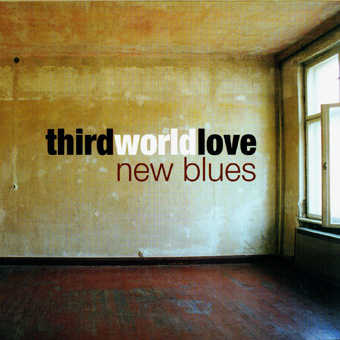
Исполнитель: Third World Love
Альбом: New Blues
Год выхода: 2007
Страна: Israel
Колличество дорожек: 11
Общее время звучания: 61:20 min
Жанр: Jazz / Jazz Conterporary / Jazz Modern Creative
Формат: Lossless / APE (log + cue + scans)
Размер файла: 340 mb
Залит на: Narod.ru
В Израиле и Европе Third World Love частенько собирают большие толпы в основном молодых людей, которые танцуют под их музыку на вечеринках ночи напролёт. Это совсем не камерный джаз, а на самом деле очень захватывающая часть вечной истории джаза и мировой музыки, напоминающая о тех хороших временах и, к сожалению, совершенно другой эпохе, когда джазовые музыканты развлекали праздные толпы. Third World Love - это группа, которая пробуждает интерес к джазу среди нового поколения поклонников с сингулярным стилем, как говорится "достукиваясь" до него в физическом и / или интеллектуальном плане. Time Out Тель-Авив сказал об этом кратко: "Забудьте все, что вы думаете о джазе... Никогда в жизни я не видел вместе так много людей, "въезжающих" в звуки со столь богатой мелодикой и гармонией. Когда музыка создается по типу "выбора нет, что слушать - шевели задом!", и при этом замечаете, как ваша глупая улыбка становится все шире и шире с каждой следующей композицией..."
Allaboutjazz.com
 Автор: mp3000, 22 ноября 2011, Комментариев: 1, Просмотров: 2 759
Автор: mp3000, 22 ноября 2011, Комментариев: 1, Просмотров: 2 759Maysa - Motions of Love (2011)

Artist: Maysa
Title Of Album: Motions of Love
Year Of Release: November 8, 2011
Label: Shanachie
Genre: Smooth Jazz, Soul, R&B
Quality: ape (image+.cue, log)
Bitrate: lossless
Total Time: 59 min 26 sec
Total Size: 445.08 mb
 Автор: VP_1974, 21 ноября 2011, Комментариев: 2, Просмотров: 1 252
Автор: VP_1974, 21 ноября 2011, Комментариев: 2, Просмотров: 1 252Rich West - Mayo Grout`s Known Universe (2009)
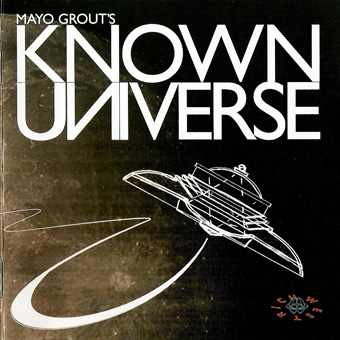
Исполнитель: Rich West
Альбом: Mayo Grout`s Known Universe
Год выхода: 2009
Страна: USA
Колличество дорожек: 7
Общее время звучания: 59:39 min
Жанр: Jazz Avant-Garde / Modern Creative / Canterbury Jazz
Формат: Lossless / FLAC (log + scans)
Размер файла: 354 mb
Источник: pavel
Залит на: Narod.ru
Драммер Rich West пишет музыку далеко не комерческого разлива - это больше авангард джаз. Звучание каждого альбома отличается от предыдущего практически всем, видимо зависит от того с кем Вест на данным проектом работает. Вообще мне нравятся его работы практически все, какие мне удалось услышать - альбомы этого музыканта, очень тяжело находятся.
 Автор: ooollleg, 21 ноября 2011, Комментариев: 1, Просмотров: 1 204
Автор: ooollleg, 21 ноября 2011, Комментариев: 1, Просмотров: 1 204Джаз и Блюз / Зарубежная музыка / Jazz Blues Soul / Chillout, Lounge, Downtempo, Trip-Hop / Vinyl Rip
Getz/Gilberto -Deluxe (1968)vinyl -rip lossless ,flac 16/44,1
RIP BY OLLLEG
Исполнитель: Stan Getz,Joan Gilberto -featuring Antonio Carlos Jobim
Альбом: Getz/Gilberto -Deluxe
Label: VEWE Recording
Catalog#: JAPAN SE 6806 SMV-2002
Жанр: Jazz,Bossa-nova
Год выпуска: 1968
Формат: Flac ,(.cue + Technical log)
Cover: format JPG
Качество: lossless flac 16 bit/44,1 kHz
Размер : 232 Мб (5% на восстановление)
Залито на: TURBOBIT,DEPOSITFILES
Альбом: Getz/Gilberto -Deluxe
Label: VEWE Recording
Catalog#: JAPAN SE 6806 SMV-2002
Жанр: Jazz,Bossa-nova
Год выпуска: 1968
Формат: Flac ,(.cue + Technical log)
Cover: format JPG
Качество: lossless flac 16 bit/44,1 kHz
Размер : 232 Мб (5% на восстановление)
Залито на: TURBOBIT,DEPOSITFILES
 Автор: ooollleg, 19 ноября 2011, Комментариев: 2, Просмотров: 1 840
Автор: ooollleg, 19 ноября 2011, Комментариев: 2, Просмотров: 1 840Танцевальное ретро - джазовые аккордеонисты(magnito-rip)lossless,flac 16-44
RIP BY OLLLEG

Исполнитель: джазовые аккордеонисты
Год выпуска: 1960-70
Жанр: ретро,инструментал,джаз
Количество композиций: 37
Время: 1 бобина Х 2стороны=92 минуты,запись скорость 19
Плёнка:NATIONAL sound GOLDEN tape RT-7G
Matsushita electric CO.,LTD 550m
Формат: flac
Качество: lossless flac 16/44,1 +24-96
Размер файла: 555 Мб +2гб (5% на восстановление)(5% на восстановление)
Залито: DEPOSITFILES,TURBOBIT,GALAXY-FILE
Архивы перезалиты 31.05.2012 +flac 24-96 !!!
Изменил: ooollleg по причине: GALAXY-FILE flac 24-96

